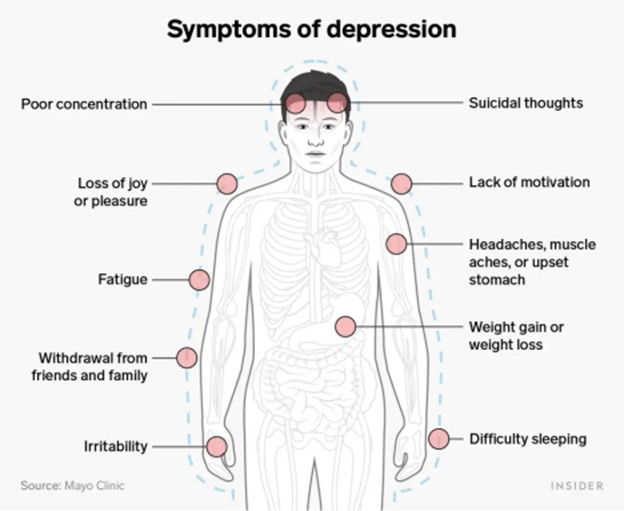A nurse is assessing a client who is experiencing chronic stress. Which of the following findings should the nurse expect?
Hypotension
Viral infection
Increased cognitive awareness
Increased energy
The Correct Answer is B
Chronic stress can weaken the immune system, making individuals more susceptible to infections, including viral infections. This is because stress hormones such as cortisol can suppress the immune response, making it harder for the body to fight off pathogens. As a result, individuals experiencing chronic stress may be more prone to illnesses such as the common cold or flu.
Incorrect:
A- Hypotension: Hypotension, or low blood pressure, is not typically associated with chronic stress. In fact, chronic stress often leads to increased sympathetic nervous system activity, which can result in elevated blood pressure.
C-Increased cognitive awareness: Chronic stress affects cognitive function. You might find it challenging to concentrate, make decisions, or stay mentally sharp.
D- Increased energy: Chronic stress typically leads to a state of exhaustion and fatigue rather than increased energy. Prolonged stress can drain a person's physical and mental energy, resulting in feelings of fatigue, lethargy, and a lack of motivation.
Nursing Test Bank
Naxlex Comprehensive Predictor Exams
Related Questions
Correct Answer is ["A","B","C","D"]
Explanation
When caring for an adolescent experiencing indications of depression, the nurse should expect the following findings:
A- Irritability: Depression can manifest as increased irritability or anger, especially in adolescents. They may become easily annoyed or frustrated.
B- Insomnia: Sleep disturbances are common in depression. Adolescents may experience difficulty falling asleep, staying asleep, or have restless and disturbed sleep.
C- Chronic pain: Depression can be associated with physical symptoms, including chronic pain. Adolescents may complain of headaches, stomachaches, or other unexplained physical discomfort.
D- Low self-esteem: Depression often involves feelings of worthlessness, guilt, and low self-esteem. Adolescents may have negative thoughts about themselves, feel inadequate, or have a distorted self-perception.
Incorrect:
E- Euphoria, on the other hand, is not a typical finding in depression. It refers to an intense state of happiness or excitement, which is not consistent with the overall mood of depression.

Correct Answer is D
Explanation
Remaining with the client demonstrates a supportive and therapeutic presence. It can help provide a sense of safety, reassurance, and comfort to the client who is experiencing difficulty sleeping and exhibiting signs of anxiety or restlessness. By staying with the client, the nurse can actively listen, observe, and assess the client's needs, allowing for prompt intervention if necessary.
A- Giving a PRN (as-needed) sleeping medication should not be the first response, as it is important to explore non-pharmacological interventions and address the underlying cause of the client's difficulty sleeping.
B- Exploring alternatives to pacing the floor with the client may be an appropriate intervention after assessing the client's needs and preferences.
C- Encouraging the client to go back to bed may not be effective if the client is experiencing significant anxiety or restlessness.
Whether you are a student looking to ace your exams or a practicing nurse seeking to enhance your expertise , our nursing education contents will empower you with the confidence and competence to make a difference in the lives of patients and become a respected leader in the healthcare field.
Visit Naxlex, invest in your future and unlock endless possibilities with our unparalleled nursing education contents today
Report Wrong Answer on the Current Question
Do you disagree with the answer? If yes, what is your expected answer? Explain.
Kindly be descriptive with the issue you are facing.
